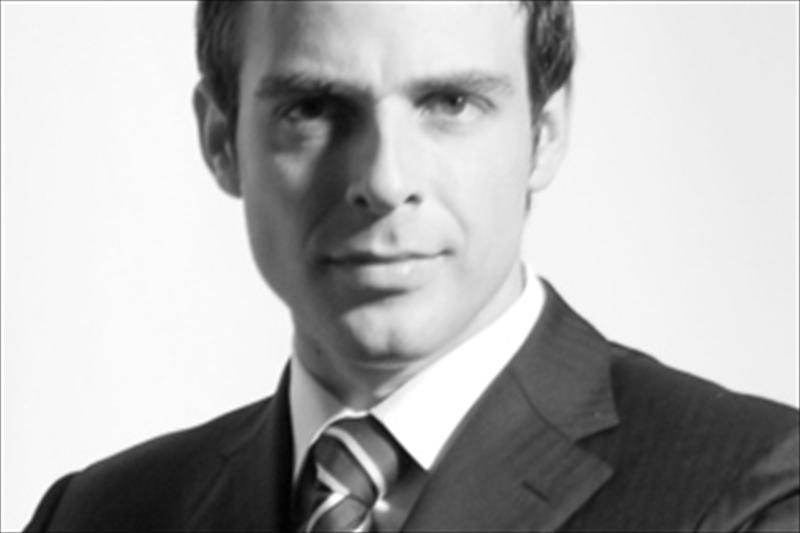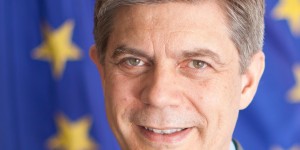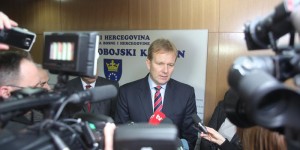The European Union is compromise and dialogue – Interview with the Advisor and Chief of the Cabinet to the President of the RS National Assembly Mladen Brankovic Under the European Union Visitors Programme, the European Commission and the European Parliament annually organizes working visits for young leaders from countries outside of the EU to help them become familiarized with the EU’s functioning and strategic importance. As part of this year’s Programme, Mladen Brankovic, the Advisor and Chief of Cabinet to the Speaker of National Assembly of Republic of Srpska, was invited to Brussels. In order to help improve the mutual understanding of the EU and BiH, as well as to become familiar with the objectives, policies, achievements, plans and EU institutions, he was invited to strengthen existing and establish new contacts and to participate in a dialogue concerning issues of mutual interest.
You recently came back from working visit to the EU which was part of The EU Visitors Programme (EUVP). Tell us about your experience in Brussels (and Strasbourg)? Have you made new contacts? You were introduced with the work of which institutions and bodies? Which topics were in focus?
At the invitation of Mr. Sorensen for my participation in EUVP, I was visiting Brussels from 24 February to 2 March. Since I already had the opportunity to be a member of the official delegation that visited Brussels several times in the last five years as a Chief of Cabinet of the RSNA Speaker, my first impression about Brussels is only a continuation of the experience that I already had in co-operation with representatives of several EU institutions. Bearing in mind that the programme was conceived on the basis of my affinity and earlier requests, most of the meetings that I had in the European Commission, the European Parliament and the European External Action Service were just a continuation of the co-operation with the representatives of these institutions. Of course, the host made additional efforts to extend meetings/persons list and make it significantly wider than those of earlier acknowledgments and acquaintances, so I can say that I made new contacts with representatives from the Council of the EU, The Committee of the Regions and other institutions that are not in direct communication with the enlargement of the EU. Considering that BiH is politically and institutionally a complex country, with large number of questions that need to be solved for further country progress towards the EU, the topics in focus were primarily fulfilment of conditions such as” Sejdic-Finci”, the issue of vertical and horizontal co-ordination, the population census, the issue of immigrants and re-discussion about the possible abolition of visa liberalization for BiH and other technical issues.
How much this programme contributes to promoting need for acceleration of EU path of BiH and the opportunities that progress on this path brings?
The programme itself is promoting EU, the functioning of the EU institutions and the need for finding a continuous compromise between the states. Of course, from the perspective of a citizen of Republic of Srpska, and therefore BiH, the benefits that EU membership brings are visible, but so are the opposite side of the coin, which is negligible compared to the real benefits. When we talk about raising awareness of the EU in this regard, I think it is necessary to include a number of people from BiH in this programme, especially from FBiH, and the reason for this is the knowledge that the entire EU is some kind of compromise and dialogue.
How much do opinion-makers and decision-makers in BiH really know about the EU? Is this knowledge sufficient for decisions, strategies, plans and operating part of the deal that will accelerate path of BiH to the EU?
The EU itself is complex, and therefore it is complex for decision makers in BiH. For those who are not directly involved with issues of EU integration, it can be a problem when we’re talking about technical issues. If we look at the decision makers and opinion formers through a political prism, I can say with certainty that there is a long road ahead for BiH.
Where can we make the biggest progress when it comes to higher awareness of leaders in BiH about the EU?
The room for improvement when it comes to higher awareness of leaders in BiH about the EU can be viewed through the prism of a better understanding of the importance of membership in the EU. Looking back to the recent history of the Balkans area, on the one hand, and general support of policies, non-governmental organizations, and especially citizens’ for EU membership on the other, there is no alternative for BiH at this moment.
What is your general impression of the plans and the approach of the EU to BiH? Which challenges were identified as the greatest for the European path of BiH during meetings that you had in Brussels?
The general impression in terms of plans, regardless of this working visit, but every visit to Brussels or discussion with representatives of the EU Delegation to BiH, can be understood as primarily realistic, and very accurate in a technical-legal sense. According to the data presented by officials with whom I had met during the visit, the EU Delegation to BiH is the first or second by the number of employees. This fact suggests that the EU took an important role in nominal and in real terms in the entire international community to the general positive approach. One of the biggest challenges when it comes to the European path of BiH, as I mentioned earlier, is the philosophy of achieving a political compromise. If political leaders in BiH – primarily I mean political leaders of FBiH – manage to overcome this psychological determinant, all citizens of BiH will have a better picture about politicians, as well as will the EU. For, the EU is united in diversity.
Interfile:
EU Visitors Programme was established in 1974 by the European Parliament and the European Commission. Today it is sponsored by Stavros Lambrinidis, the Vice-President of the European Parliament and Catherine Ashton, the High Representative of the EU for Foreign Affairs and Security Policy and Vice-President of the European Commission.




